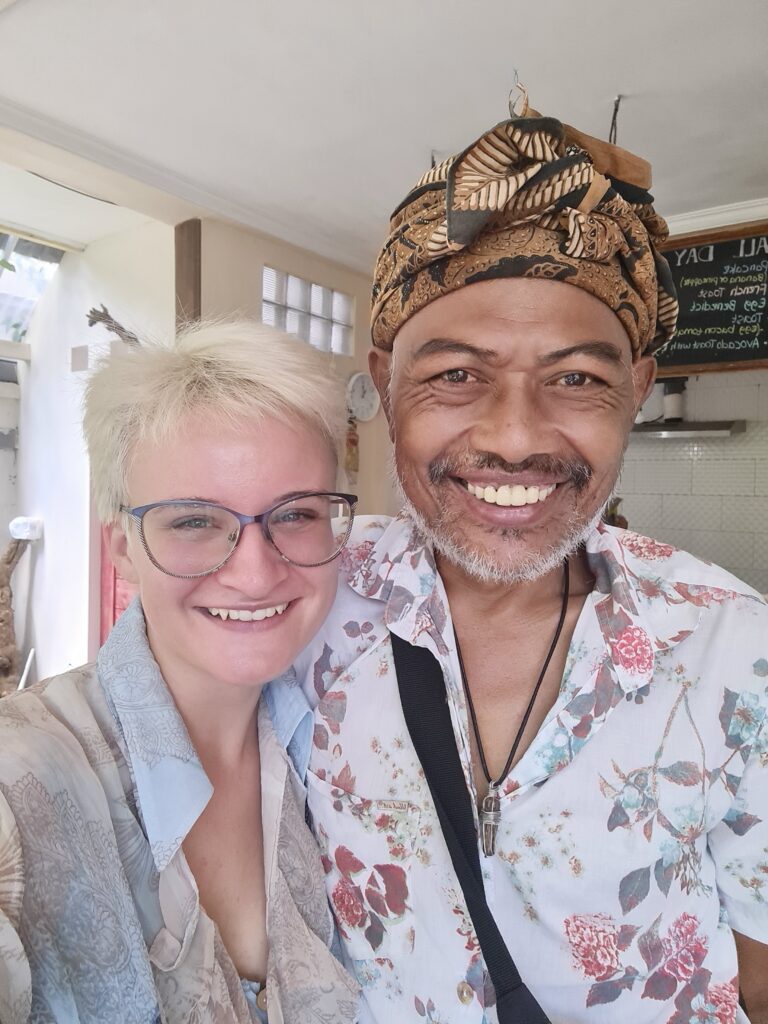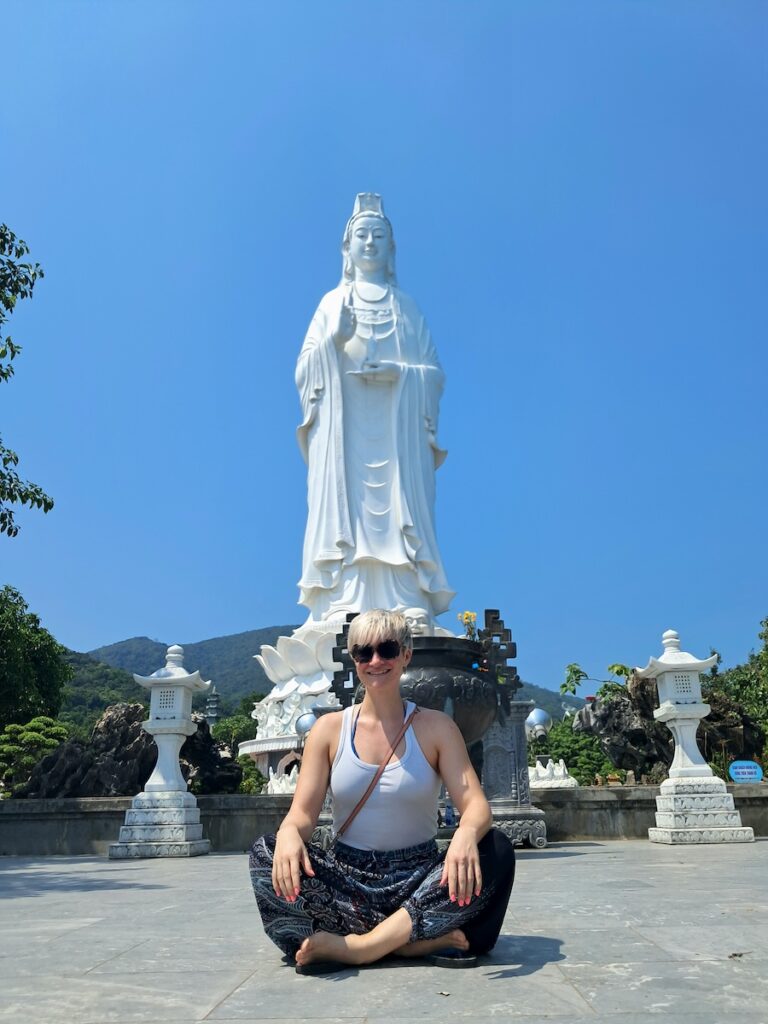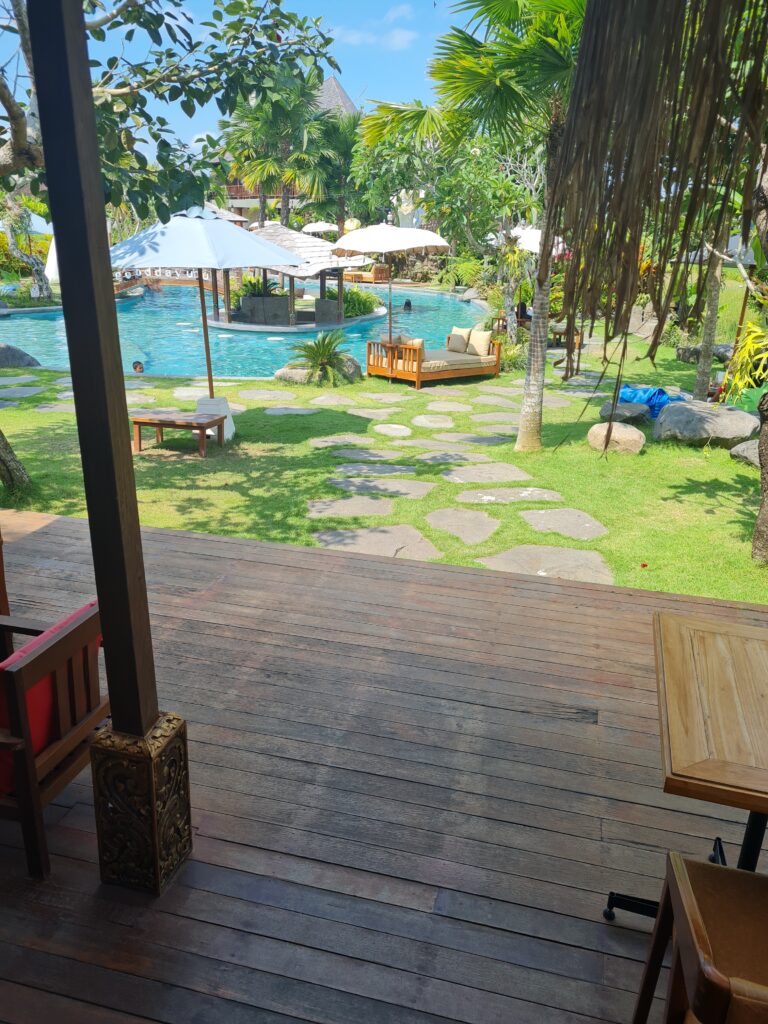Bali is a paradise — or at least it’s hailed as one. But is it really? And what are the altneratives? Vietnam’s been making the news: When it comes to Bali or Vietnam: Which is better?
In the last two years, Bali’s prices have soared, and the Indonesian government keeps finding new ways to profit off tourists. On top of that, the island is becoming overrun with those very tourists.
So, the question is: Is Bali still the paradise it once was? And where else can digital nomads seek a mindful, creative, and collaborative environment?
Having lived extensively in both Bali and Vietnam over the past two years, I find myself asking: Is Da Nang the new Ubud?
My verdict?
I can’t help but miss Ubud—it has a magic that’s hard to explain. But Da Nang captivates me with its convenience, affordability, and transparency. There’s something undeniably special about the Island of the Gods, yet Da Nang makes a strong case as a contender.
In the debate of Bali or Vietnam, the decision is ultimately yours, and you might need to experience both to truly know.
However, there are some clear contrasts between these two countries, particularly when comparing the main digital nomad hubs: Da Nang and Ubud. On paper, Da Nang might seem like the winner, but Ubud could easily steal your heart.
What’s your take? Let’s dive into the differences between these two digital nomad destinations in 2024. And if you’ve been to Bali or Vietnam, let me know—what’s your honest opinion of the Island of the Gods versus this rising coastal town for nomads?
Overall Cost of Living: Is Bali Cheaper Than Vietnam?
When it comes to cost of living, Da Nang is significantly more affordable than Ubud, offering digital nomads more value for their money.
In Da Nang, you can rent a modern, well-maintained two-bedroom apartment by the beach for as little as $550 a month—something you’d struggle to find in Ubud or even Canggu. In Bali, you’re looking at $600 just for a room, and that’s before you even step out of the shared kitchen to grab a coffee.
Dining out and groceries are also notably cheaper in Da Nang.
As a digital nomad couple, we spent between $1,800 and $2,200 per month in Ubud, while living the same lifestyle in Da Nang cost us just $1,200 to $1,600. I have a detailed cost breakdown of living as a nomad in Ubud and Da Nang.
For digital nomads who prioritize affordability, Da Nang clearly outshines Ubud, making it an ideal choice for a location-independent lifestyle, heck even as a temporary home (check out the super favorable visa requirements down below!).
Save this for when you need it:
Da Nang Versus Ubud: Comparing the Digital Nomad Lifestyle
The lifestyle for digital nomads differs significantly between Ubud and Da Nang, with each city offering a unique vibe.
At first glance, you might notice that Da Nang seems to have just as many yoga studios as Ubud, but the overall feel is entirely different. Ubud is nestled in the jungle and mountains, creating a peaceful, nature-centered atmosphere.
In contrast, Da Nang is a bustling urban city by the sea. Both are appealing in their own way, but they offer distinct experiences for digital nomads.
Ubud is celebrated for its serene atmosphere, yoga retreats, and lush jungle vibes, making it perfect for those who want to slow down, reconnect with nature, and cultivate inner peace. Many digital nomads come to Ubud seeking a slower pace of life and a stronger spiritual connection.
Da Nang, on the other hand, has a more urban feel, with a growing expat community that enjoys life near the beach. However, the city itself is more of a “concrete jungle.” If you’re looking for a Balinese-style villa in Vietnam, you may want to explore just south of Da Nang, in Hoi An, where the bohemian, laid-back vibe is more pronounced.
In both Ubud and Da Nang, expect to embrace a motorbike lifestyle and enjoy incredibly affordable meals at local restaurants, with dinner sometimes costing as little as $1.
As far as lifestyle is concerned, your choosing between Da Nang versus Ubud should come down to the season you’re in (I have a guide how to choose the right destination here).
Read also: How to Become a Digital Nomad with No Experience (!?)
Curious? Learn more about my own journey out of full-time employment and into freedom entrepreneurship.
Bali or Vietnam: Comparing Culture and Spirituality for Digital Nomads
The deeply rooted spirituality of Hinduism is likely what draws many digital nomads to Bali, especially Ubud. Vietnam, on the other hand, is predominantly Buddhist, but the dominance of communism seems to contribute to a much subtler spiritual atmosphere in Da Nang.
While Da Nang is a hub for digital nomads, it doesn’t offer the same spiritual depth that Bali, particularly Ubud, does. Despite the commercialization of some spiritual practices in Bali, authentic experiences are still easy to find, and when you do, they’re unlike anything else.
While the Marble Mountains and the iconic Lady Buddha statue serve as powerful destinations for spiritual seekers, the culture in Da Nang feels more modern and less spiritually immersive than in Ubud.
In Ubud, the rich traditions of Hinduism and Kashmir Shaivism are woven into everyday life. Daily offerings, ceremonies, and sacred rituals are common sights. One of my personal highlights is attending yoga classes inside the Shiva Shala at Alchemy Meditation and Yoga Center—it’s an experience you can’t easily replicate.
If you’re looking to have a deeply immersive spiritual experience, I’d recommend Ubud over Da Nang still. Alternatively, if you’re more drawn to Buddhism, Thailand seems to be more strongly intune with its religion than Vietnam is. (check out one of my favorite spiritual hikes in Chiang Mai)
If you’re curious how to fully immerse yourself in the local spirituality of Ubud, check out this guide for spiritual nomads.


Bali or Vietnam: Which Offers Better Health Care for Digital Nomads?
Health care is a critical factor for digital nomads, and having solid health insurance is always a smart move. Neither Bali nor Vietnam are known for top-tier medical services, so comparing Da Nang and Ubud in terms of health care availability leaves no clear winner.
Thankfully, we never faced any major medical emergencies during our time in either location. Based on the little experience we have from a minor motorbike accident and routine dental cleanings, both Da Nang and Ubud offer accessible health care facilities with English-speaking staff.
Still, I wouldn’t want to seriously get sick in either country.
Which is why, for digital nomads living in developing regions, it’s essential to ensure your insurance covers emergency transportation to a nearby country with advanced medical facilities, like Singapore.
My perferred and beloved insurance is PassportCard which is incredibly comprehensive, covering everything from preventative care and emergency treatment to holistic medicine and major illnesses like cancer, and even pregnancy.
Alternatively, we’ve also used SafetyWing. While it focuses mainly on emergencies and accidents, it’s a reliable option for handling urgent care and even lost luggage.
Rent: Da Nang versus Ubud
Now, let’s talk about where you’ll be living!
In a nutshell, Ubud is overpriced, and you’ll likely share your space with plenty of mosquitoes. On the flip side, Da Nang offers modern, well-maintained apartments with air-tight windows and doors, making it the clear winner when it comes to housing.
In Bali, charming villas with outdoor kitchens and private pools are the norm. However, these setups come at a steep price. In contrast, Da Nang offers air-tight, modern apartments by the beach, often with rooftop pools and ocean views, at a fraction of the cost.
Since 2022, rental prices in Ubud have skyrocketed, and the value of accommodations has, sadly, declined. You need to spend upwards of $600 just to get a room. A two bedroom villa? $1500 and up. This is one of the main reasons why we no longer stay in Bali for extended periods. (The other reason? Immigration—but we’ll get to that soon.)
On the other hand, Da Nang is a breath of fresh air when it comes to finding affordable housing. The city is full of well-maintained, vacant apartments, and finding a good deal is a breeze.
Rental prices in Vietnam have remained stable since I first started coming here in 2019. For example, you can find a one-bedroom apartment for as little as $300. Our current two-bedroom apartment with a balcony and ocean view costs just $550 a month. If you’re willing to spend around $1,000, you’ll live like royalty in Da Nang.
So, when it comes to the cost of rent in Bali versus Vietnam, Da Nang is the clear winner. In fact, I wouldn’t be surprised if VietAir recently added more flights from Denpasar to Da Nang—many of us are making the move!
Affordability of Food and Groceries
When it comes to food, Da Nang is the clear winner for affordability, availability, and healthy options.
Although Ubud boasts incredible cafés—many of which double as co-working spaces—nothing matches the low prices in Da Nang.
In Da Nang, the main grocery stores like Mega Mart and Moonmilk are well-stocked with both international and local goods at affordable prices. A beer costs around 80 cents, fresh tuna steaks are $2 each, beef is $10 per kilo, and chicken is just $2.50 per kilo.
For $180 per person per month, we fill our fridge with quality groceries. Plus, dining out frequently—about every other day—costs only $120 per person monthly. Western restaurants charge as little as $4 for a delicious burger, while local pho shops offer meals for just $1–$2.
In Ubud, eating out at Warungs is often cheaper than buying groceries, but not always the healthiest option. Grocery shopping in Bali can get expensive, especially for imported items like cheese and alcohol, which are heavily taxed.
To get a better value, it’s best to shop at local markets for fresh produce. Our grocery bill averaged $220 per person, and we budgeted $180 per person for eating out, with local warungs offering meals like nasi goreng for $1 and Western restaurants averaging at $10 per person.
Overall, Da Nang offers a more affordable, diverse, and healthier food scene compared to Ubud.
Save and share this:
Co-Working Spaces and Cafes: Where to Work?
Bali or Vietnam? Both offer great working environments, each with its own distinct vibe.
The grass is always greener on the otherside, isn’t it?
When I’m working in an open-air co-working space with a pool in Ubud, I miss the air-conditioned, sleek spaces in Da Nang with standing desks, and vice versa.
Da Nang boasts modern cafés and co-working spaces with air-conditioning, making it ideal for digital nomads seeking a productive, professional environment. In contrast, Ubud’s cafés and co-working spaces tend to blend with nature, have an open-air design and kinda cool the air with a bunch of ceiling fans.
Personally, I’m more productive in Da Nang’s air-conditioned spaces but feel more inspired and connected to nature in Ubud.
Both cities offer plenty of opportunities for digital nomads to network, collaborate, and enjoy the shared “laptop lifestyle.”


Visa Situation: Ease of Staying Long-Term
Plain and simple: when it comes to comparing Vietnam versus Bali for visa ease, Vietnam is the clear winner. While Bali’s visa process can be complicated and expensive, Vietnam’s is straightforward and affordable.
For short-term stays, Bali grants 30-day visas, while Vietnam offers 45 days.
However, if you plan to stay longer, Bali’s visa policies can be complicated and expensive, mostly because they’re ever-changing.
As of 2024, staying in Bali for six months can cost upwards of $600, and you must begin the process while offshore. The process is often frustrating, with frequent policy changes adding to the confusion.
Vietnam’s tourist visa process, by contrast, is much simpler and more affordable. A single-entry visa costs $25 and lasts for three months which you can easily apply for online. You don’t even need a return ticket.
During that time, you just head over to Lynn Visa Agency, pay them $120, and go on a nice bus road trip (included in fee) at the end of your three months. You come right back in on the same day with a fresh, three month visa. t again three months later.
As long as you don’t overstay your visas, you’re good in Vietnam. Our visa agent told us we’d be able to get visa renewals in this fashion indefinitely!!! And yes, these are all tourist visas, so no tax liability.
So, yeah, Vietnam is the clear winner over Bali when it comes to immigration. Frankly, it’s the best I’ve come across.
Internet Connection: How Reliable is the Wifi?
If you’re thinking of relocating from Bali to Da Nang, I got great news: Da Nang offers more stable and faster internet connectivity.
In Bali, especially during the rainy season, the internet can be quite unstable, and cafes don’t always have the most reliable WiFi.
On the other hand, in Vietnam’s larger cities, like Da Nang, the weather rarely impacts connectivity. Cafes in Da Nang also provide a stronger internet connection, making it easy to settle to give into the temptation to get just one more Coconut Coffee and get another project done.

Transportation: Getting Around
Getting around in both Da Nang and Ubud presents its own challenges, mainly due to the lack of proper driving etiquette.
In both cities, the streets are filled with confident (if not reckless) local drivers. Add in countless tourists and nomads mounting a bike for the first time with the confidence only someone who’s not yet had an accident can have, and you’re in for praying your way through the drive.
However, I feel slightly safer in Da Nang, where Grab cars are readily available (making the commute much safer), and the infrastructure is more developed.
Ubud’s roads can be narrow and winding, making it a bit more treacherous. Regardless of where you are, always wear a helmet and stay alert when navigating these bustling cities by bike.
Weather: How Does It Compare?
This one was surprising! Bali can be sweltering during the dry season. LAter, between October and March, the humidity soars and rain can make the roads slippery and unsafe. I personally avoid Bali during this time because of the uncomfortable heat and unpredictable weather.
Da Nang, on the other hand, has a surprisingly pleasant rainy season. In fact, I prefer rainy season over dry season in Da Nang!
The temperature hovers around 25°C (77°F) with little humidity, and the occasional rain shower lasts only 30 minutes before the skies clear. It’s a much more bearable climate!
If you’re trying to split your time between these two cities, my advice is to stay in Bali from April to September, and then head to Da Nang for the cooler months.
Final Words: Bali or Vietnam, Which is Better?
When it comes to choosing between Da Nang and Ubud, it ultimately depends on what you’re looking for in your digital nomad lifestyle.
If you’re drawn to a more serene environment focused on nature, yoga, and spiritual practices, Ubud remains a top contender. Its vibrant community is rich with creativity, wellness retreats, and opportunities for personal growth.
However, if affordability, modern conveniences, easy visa processes, and a laid-back beach lifestyle are your priorities, Da Nang might just be the new Ubud. With its strong infrastructure, reliable WiFi, lower cost of living, and growing expat scene, Da Nang offers a balanced mix of urban and coastal living that’s hard to beat.
In the end, both cities provide unique experiences for digital nomads, but Da Nang could very well be the emerging hotspot, combining the best of both worlds at a fraction of the cost.
The decision between Vietnam or Bali—and whether Da Nang is the new Ubud—comes down to your personal preferences and what you value most in your digital nomad journey. Personally, I’m thinking a year in Vietnam with extensed visa-runs to Ubud…you?
Save, share, and pin this:







0 Comments